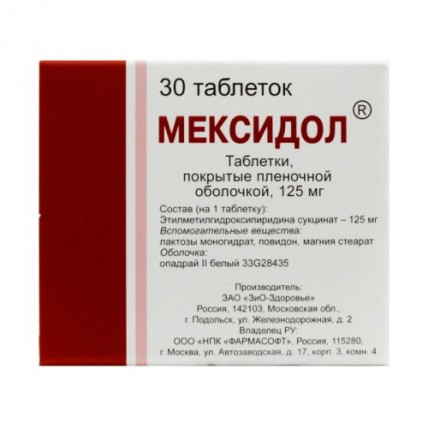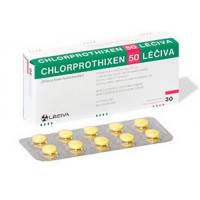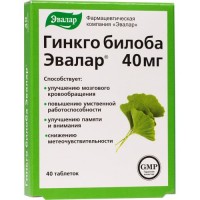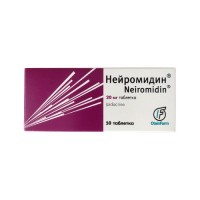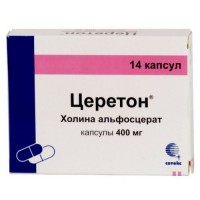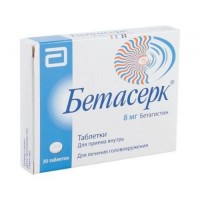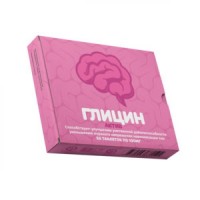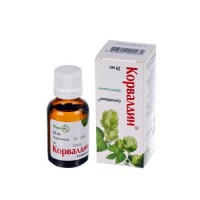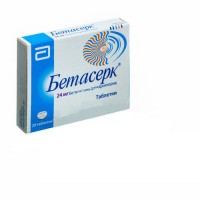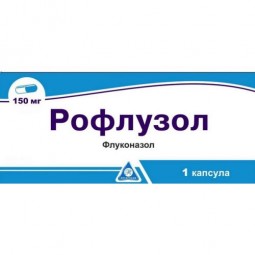MEXIDOL® (Emoxypine) 125 mg, 30 coated tablets
- $15.00
Emoxipine has been found to have an anxiolytic, anticonvulsant, nootropic activity, and to improve cerebral microcirculation. Mexidol is a relatively new compound whose chemical structure is closely related to that of pyridoxine, aka vitamin B6. After being first synthesized by L.D Smirnov and K.M Dumanyev at the Russian Institute of Biochemical Physics in the 1980s, the pharmaceutical properties of emoxypine has been the subject of several studies, and whereas it is already distributed in the Russian Federation, Georgia, and Peru under the tradename of Mexidol or Meloxicam, emoxypine is still widely unknown in other countries and is not approved by either the FDA or the EMA.
Common brand names: Mexidant, Cerecard, Astrox, Mexidol solution for injections 5%, Mexicor, Ethylmethylhydroxypyridine succinate
Synonyms: Mexidol, Mexidole, Mexidol succinate, Mexidol fandachem, Emoxypine Succinate, 2-Ethyl-6-Methylpyridin-3-ol succinate, 2-Ethyl-6-Methyl-3-pyridinol butanoate, 2-Ethyl-6-methyl-3-hydroxypyridine succinate, 2-Ethyl-6-methyl-3-pyridinol butanoate (1:1), 2-Ethyl-3-hydroxy-6-methylpyridine Succinate
One tablet contains the active substance: ethylmethylhydroxypyridine succinate - 125 mg.
Excipients: lactose monohydrate, sodium carboxymethyl cellulose (sodium carmellose), magnesium stearate.
- consequences of acute disorders of cerebral circulation, including after transient ischemic attacks, in the phase of subcompensation as preventive courses
- mild traumatic brain injury, consequences of traumatic brain injury
- encephalopathy of various origins (discirculatory, dysmetabolic, post-traumatic, mixed)
- vegetative dystonia syndrome
- mild cognitive disorders of atherosclerotic genesis
- anxiety disorders in neurotic and neurosis-like conditions
- ischemic heart disease as part of complex therapy
- relief of withdrawal symptoms in alcoholism with a predominance of neurosis-like and vegetative-vascular disorders, post-withdrawal disorders
- conditions after acute intoxication with antipsychotic drugs
- asthenic conditions, as well as for the prevention of the development of somatic diseases under the influence of extreme factors and loads
- exposure to extreme (stress) factors
Inside, 125-250 mg 3 times a day; the maximum daily dose is 800 mg (6 tablets). The duration of treatment is 2-6 weeks; for relief of alcohol withdrawal - 5-7 days. The treatment is stopped gradually, reducing the dose over a period of 2-3 days.
The initial dose is 125-250 mg (1-2 tablets) 1-2 times a day with a gradual increase until a therapeutic effect is obtained; the maximum daily dose is 800 mg (6 tablets).
The duration of the course of therapy in patients with ischemic heart disease is not less than 1.5 - 2 months. Repeated courses (on the recommendation of a doctor), preferably carried out in the spring and autumn periods.
Mexidol® can be combined with all drugs used to treat somatic diseases. Enhances the effect of benzodiazepine drugs, antidepressants, anxiolytics, anticonvulsants and antiparkinsonian drugs. Reduces the toxic effects of ethyl alcohol.
If the drug is prescribed to patients with diabetes mellitus, regular monitoring of blood glucose levels is necessary. Treatment in this case begins with the minimum recommended doses with a gradual increase (in the absence of adverse reactions) until a therapeutic effect is obtained.
Features of the effect of the drug on the ability to drive a vehicle or potentially dangerous mechanisms
Care should be taken when driving vehicles and potentially dangerous machinery.
Symptoms: increased side effects
Treatment: the drug is temporarily canceled. Symptomatic treatment
Store in a dry, dark place at a temperature not exceeding 25 ºС.
Keep out of the reach of children!
Shelf life - 3 years
Do not use after the expiration date indicated on the package.
Common brand names: Mexidant, Cerecard, Astrox, Mexidol solution for injections 5%, Mexicor, Ethylmethylhydroxypyridine succinate
Synonyms: Mexidol, Mexidole, Mexidol succinate, Mexidol fandachem, Emoxypine Succinate, 2-Ethyl-6-Methylpyridin-3-ol succinate, 2-Ethyl-6-Methyl-3-pyridinol butanoate, 2-Ethyl-6-methyl-3-hydroxypyridine succinate, 2-Ethyl-6-methyl-3-pyridinol butanoate (1:1), 2-Ethyl-3-hydroxy-6-methylpyridine Succinate
Composition
One tablet contains the active substance: ethylmethylhydroxypyridine succinate - 125 mg.
Excipients: lactose monohydrate, sodium carboxymethyl cellulose (sodium carmellose), magnesium stearate.
Indications for use
- consequences of acute disorders of cerebral circulation, including after transient ischemic attacks, in the phase of subcompensation as preventive courses
- mild traumatic brain injury, consequences of traumatic brain injury
- encephalopathy of various origins (discirculatory, dysmetabolic, post-traumatic, mixed)
- vegetative dystonia syndrome
- mild cognitive disorders of atherosclerotic genesis
- anxiety disorders in neurotic and neurosis-like conditions
- ischemic heart disease as part of complex therapy
- relief of withdrawal symptoms in alcoholism with a predominance of neurosis-like and vegetative-vascular disorders, post-withdrawal disorders
- conditions after acute intoxication with antipsychotic drugs
- asthenic conditions, as well as for the prevention of the development of somatic diseases under the influence of extreme factors and loads
- exposure to extreme (stress) factors
Method of administration and dosage
Inside, 125-250 mg 3 times a day; the maximum daily dose is 800 mg (6 tablets). The duration of treatment is 2-6 weeks; for relief of alcohol withdrawal - 5-7 days. The treatment is stopped gradually, reducing the dose over a period of 2-3 days.
The initial dose is 125-250 mg (1-2 tablets) 1-2 times a day with a gradual increase until a therapeutic effect is obtained; the maximum daily dose is 800 mg (6 tablets).
The duration of the course of therapy in patients with ischemic heart disease is not less than 1.5 - 2 months. Repeated courses (on the recommendation of a doctor), preferably carried out in the spring and autumn periods.
Side Effects of Mexidol
- Nausea and dry mouth
- Sleepiness
- Allergic reactions
Contraindications
- Increased individual sensitivity to the drug
- Acute disorders of liver and kidney function
- Children and adolescents up to 18 years old
- Pregnancy and lactation
Mexidol® interactions
Mexidol® can be combined with all drugs used to treat somatic diseases. Enhances the effect of benzodiazepine drugs, antidepressants, anxiolytics, anticonvulsants and antiparkinsonian drugs. Reduces the toxic effects of ethyl alcohol.
Special precautions
If the drug is prescribed to patients with diabetes mellitus, regular monitoring of blood glucose levels is necessary. Treatment in this case begins with the minimum recommended doses with a gradual increase (in the absence of adverse reactions) until a therapeutic effect is obtained.
Features of the effect of the drug on the ability to drive a vehicle or potentially dangerous mechanisms
Care should be taken when driving vehicles and potentially dangerous machinery.
Mexidol® Overdose
Symptoms: increased side effects
Treatment: the drug is temporarily canceled. Symptomatic treatment
How should I store Mexidol®?
Store in a dry, dark place at a temperature not exceeding 25 ºС.
Keep out of the reach of children!
Shelf life - 3 years
Do not use after the expiration date indicated on the package.
